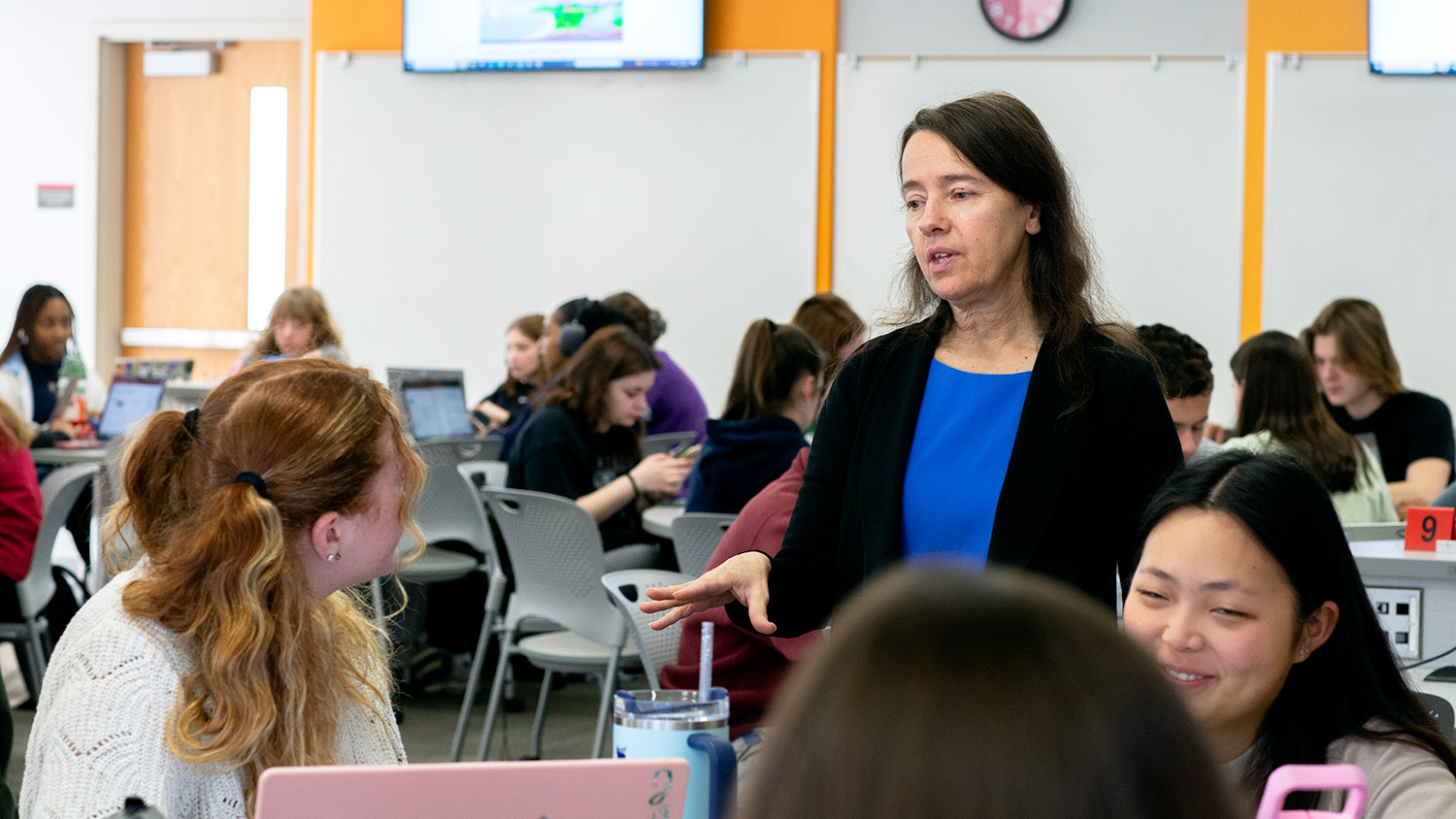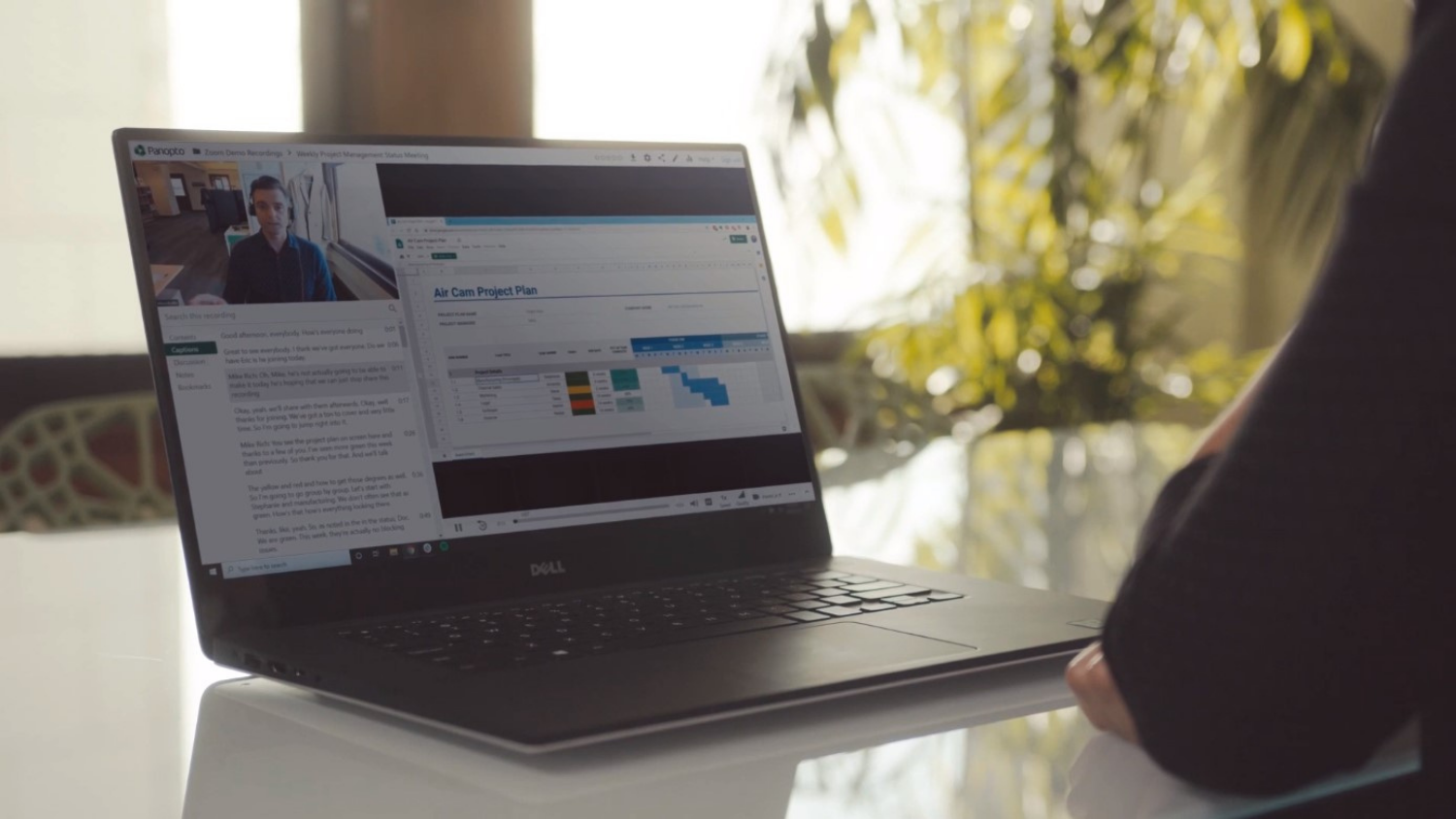New CTI Nameplates Utilize Latest Technology
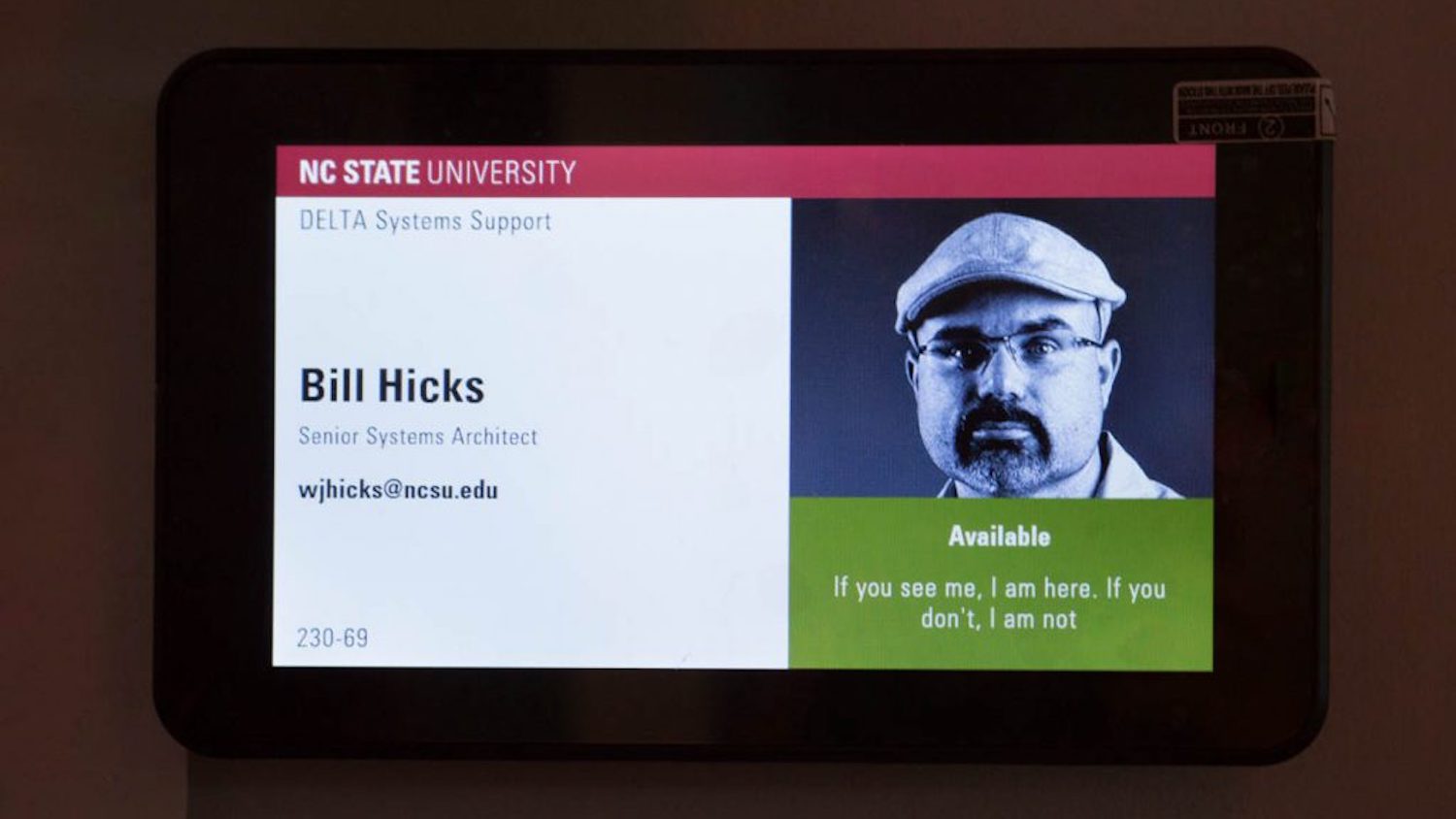
Director of DELTA’s Educational Technology Services Lou Harrison recently worked to create a new communication tool for the staff of DELTA. The new technology is a modifiable tablet nameplate, installed outside of every office space in the new Center for Technology and Innovation (CTI). DELTA employees can set a status on the tablet including free, busy, in a meeting, on lunch break or available for questions.
Harrison originally identified the need after the transition of DELTA staff into the new office suites located at CTI.
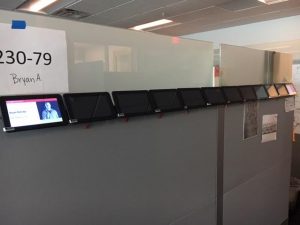
The technology introduced by the new nameplates is a web-based interface. Employees can go to signs.delta.ncsu.edu to set their status. The technology can also process Google Calendar events as well.
“Eventually, there will be a way to look up people to see if they are busy before you saunter over. So, that’s one benefit. Another is it’s kinda cool, and modifiable, if we want turkey themed signs on Thanksgiving, we can make that happen,” said Harrison.
Harrison explained he worked with Bill Hicks to develop the engineering work and Steve Bader and David Tredwell created the software. Tredwell worked mainly on the app part and Bader focused on the web interface. Harrison also credited many others who helped with creative ideas, testing, troubleshooting and installation.
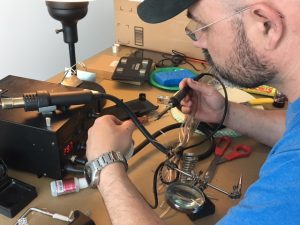
One of the biggest challenges will be getting DELTA staff to remember to use the new technology.
The future for the nameplate technology looks promising. The technology allows for the possibility of a map view or conference room view. Also, the nameplate tablets have cameras, microphones and other features like normal Android tablets, which could possibly allow for video voicemail, temperature measuring and security features. “I see it as another tool to make us be a little more productive, and hopefully it’s fun too,” said Harrison.

